Best Baby Cereal 2025 (expert review + feeding tips)
Medically reviewed and co-written by Jamie Johnson, Registered Dietitian Nutritionist (RDN), and Lauren Braaten, Pediatric Occupational Therapist (OT).
Best Cereals for Babies – an expert review of our favorite brands of baby cereal! In this guide, you will find everything you need to know about baby cereal including, the benefits of cereal, what to look for in a store-bought cereal, the difference between organic and non-organic varieties, plus 6 of our all-time favorite baby cereal options on the market and how to choose between rice, oatmeal, mixed grain, and even quinoa! Great for babies 4-6+ months.
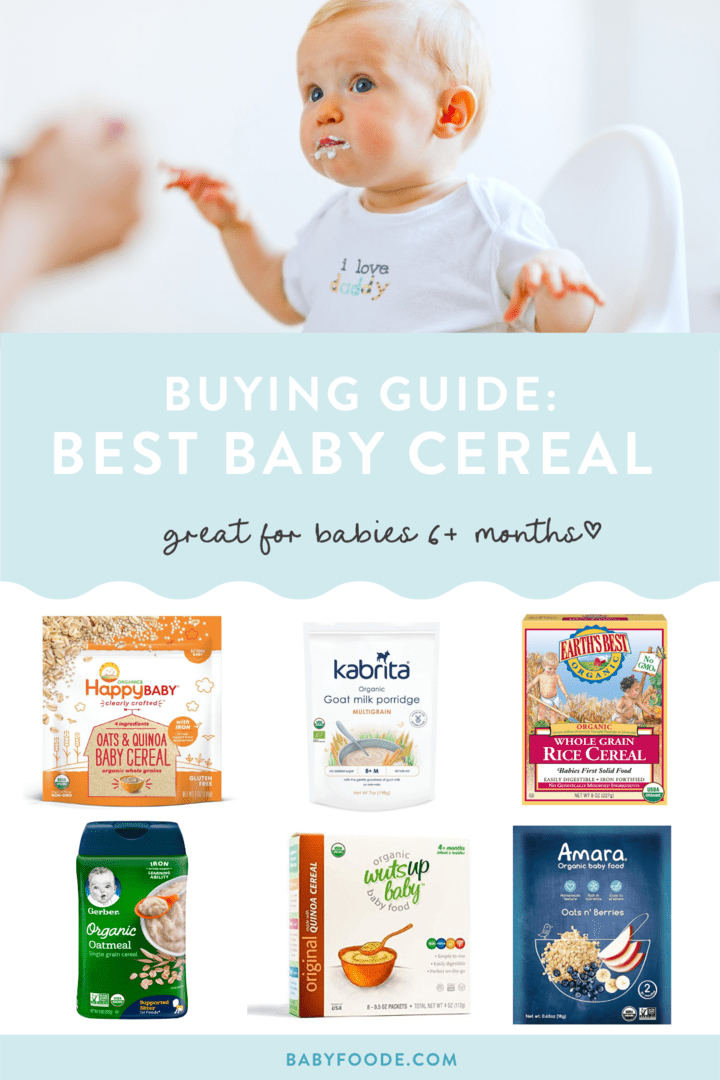
Baby Cereal
Are you looking to introduce your baby to their first cereal but not sure where to start? Is looking at all of the options stressing you out?
Well, then you came to the right place!
In this guide, you will find all the information you need in order to pick a baby cereal (or two) that is best for your baby. We will cover what are the benefits of baby cereal, what to look for in store-bought cereal, the difference between organic and non-organic varieties, do baby cereals contain arsenic, plus we go over 6 of our all-time favorite baby cereals on the market and how to choose between rice, oatmeal, mixed grain, and even quinoa!
For years, baby cereal has been one of the most recommended first foods for infants by pediatricians, with rice and oats being the most common ingredients. They are usually low on the allergen list and they are easy on your little one’s tummy. Moreover, most of these products come packaged as a very fine powder to allow for a silky smooth finish.
Nowadays, it is recommended to start your baby off eating a wide variety of pureed or whole foods (referred to as baby-led weaning) such as fruits, vegetables, grains, yogurt, beans, avocados, and more!
So, while baby cereals can be the first food you introduce to your baby, it doesn’t have to be the only one.
While offering baby cereal that is fortified with iron is still a great option as one of your baby’s first foods, we also recommend you serve baby a variety of other foods that gives your little one an opportunity to benefit from a wide variety of nutrients.
Benefits of Baby Cereal
- Baby cereals are typically fortified with iron, so they are a good way to ensure that a baby is meeting his iron needs. They also provide other minerals like zinc and calcium and vitamins B,C, and E.
- If the cereal is made from whole grains, it will contain fiber, which is good for your baby’s digestive system.
- They are typically easy to digest, so they can be a good option for babes with sensitive stomachs.
- Baby cereals make a good first food for babies feeding purees and can be thickened as the baby advances to thicker purees. If doing BLW, they tend to stick to a preloaded spoon easily.
- Allows for easy introduction to textures and combination foods.
- Simple to make and affordable.
Nutritional Tip: because each brand of baby cereal is made with different grains (rice, oats, quinoa, barley, etc.) which all have different nutrients, it’s important to serve a variety of baby cereal to your baby to optimize their nutritional intake of grains.
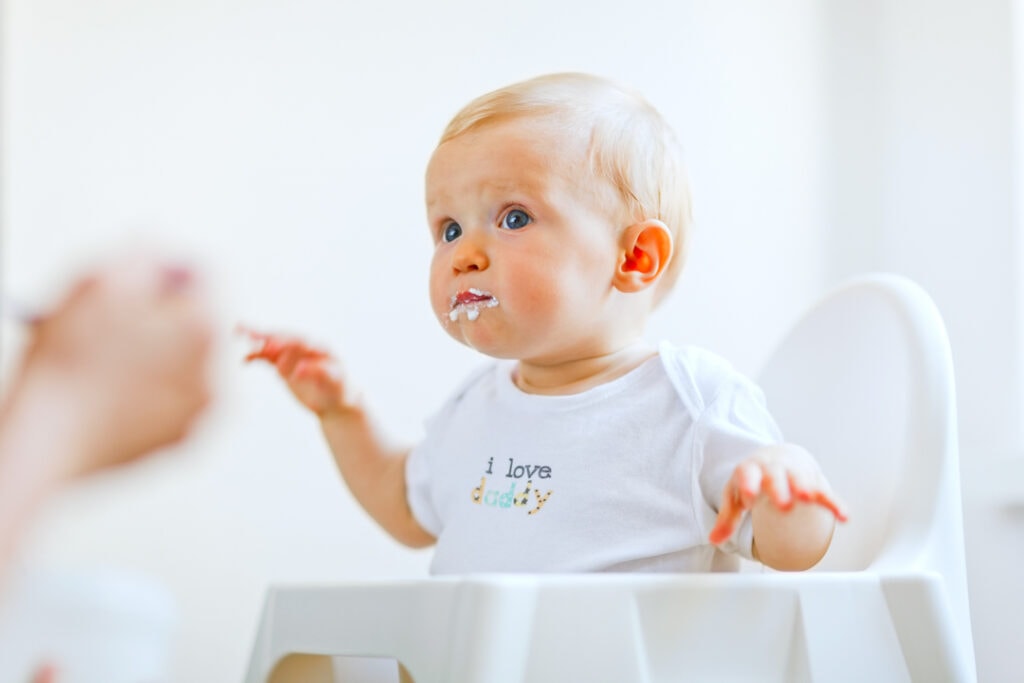
When can Baby be Introduced to Baby Cereal
Your baby can start baby cereals when they start solid foods, usually around 4-6 months of age. Look for these readiness signs in your baby:
- Around 6 months of age
- Sitting with minimal assistance
- Good control of their head and trunk
- Bringing hands and toys to their mouth
- Appears interested in food, possibly by reaching for or leaning forward towards food
Before you start weaning your baby, you should consult with your pediatrician to make sure your child is developmentally ready.
What to Look for in a Baby Cereal
Make sure the baby cereal you choose to serve is fortified with iron. It should have very few ingredients, really just grains and any vitamins and minerals it has been enriched or fortified with. Ideally, you want to choose organic if your budget allows.
Organic vs. Non-Organic Baby Cereal
Organic baby cereal is made from grains that were not grown with synthetic pesticides, as opposed to non-organic baby cereal that was. Organic baby cereal will therefore have less pesticide residue in the cereal than non-organic, or conventionally grown, and limit baby’s exposure to them. This does not mean that organic rice cereal is arsenic-free. Both organic and non-organic baby rice cereals contain arsenic. Other than pesticide residue exposure, there is no difference in nutrition in organic and non-organic foods.
How to Make Homemade Rice Cereal Video
Interested in making your own baby cereal? Then check out this video and watch how easy it can be!
Different Grains in Baby Cereal
Baby cereals are usually made from rice, oats, barley, quinoa or a mixture of grains. They all offer different nutrients so it is best to serve a variety to your baby.
Our Favorite Baby Cereals
- Happy Baby Organics Oats & Quinoa Baby Cereal
- Gerber Organic Baby Oatmeal Cereal
- Kabrita Organic Goat Milk Porridge
- Amara Organic Oats and Berries
- WutsupBaby Organic Quinoa Baby Cereal
- Earth’s Best Organic Infant Cereal, Whole Grain Rice
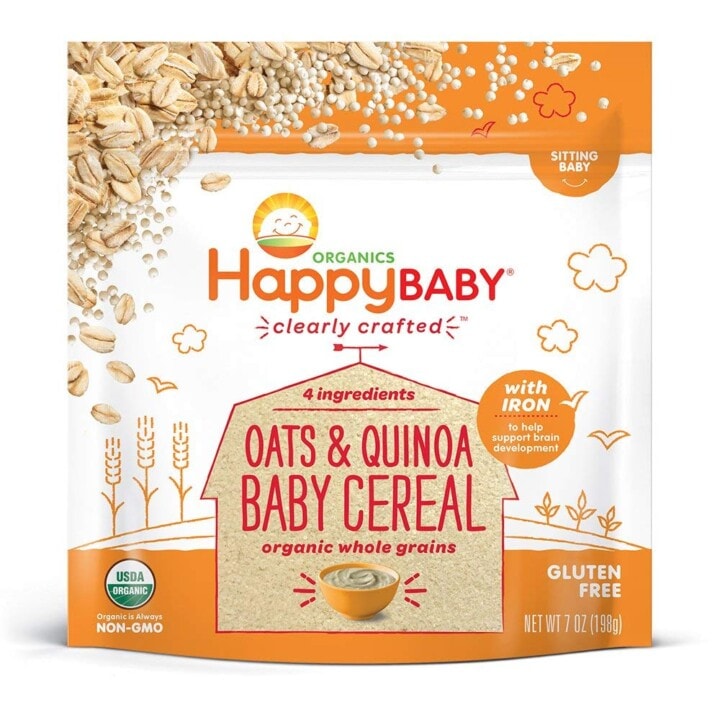
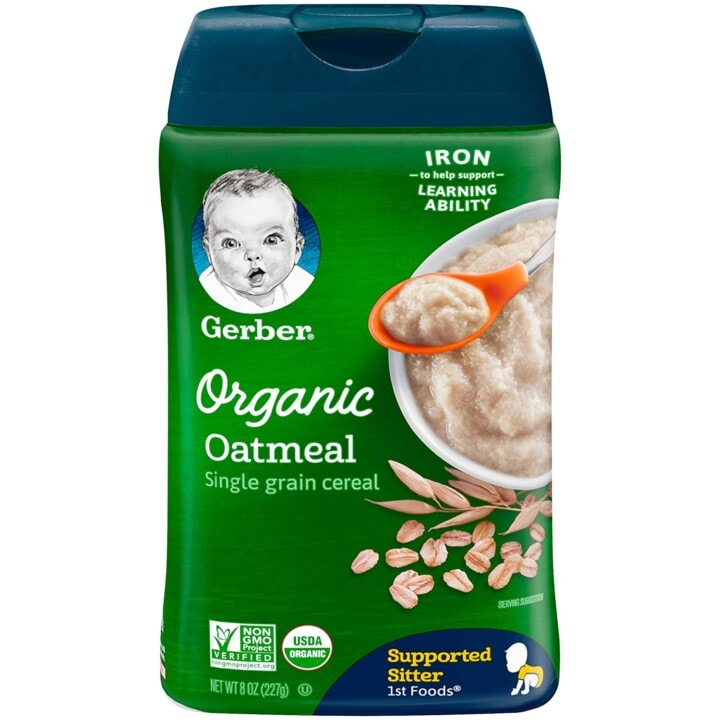
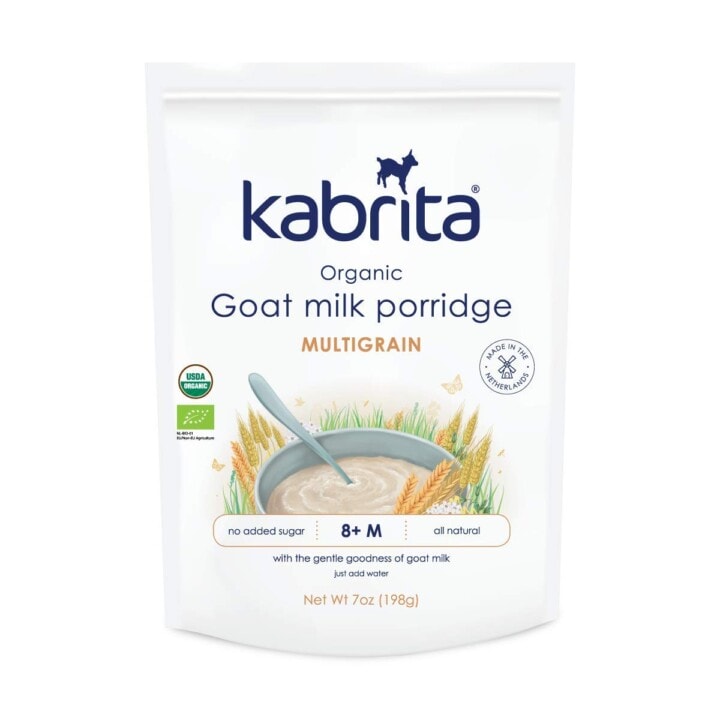
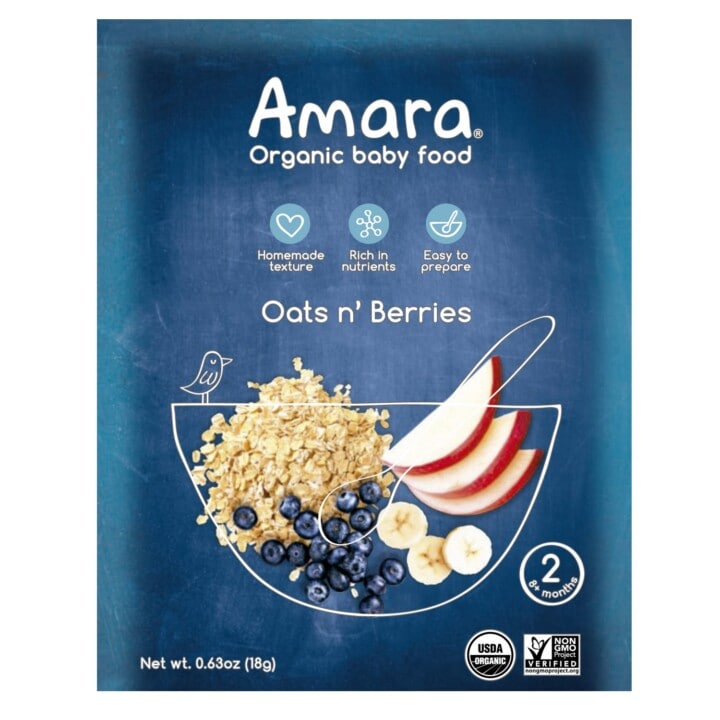
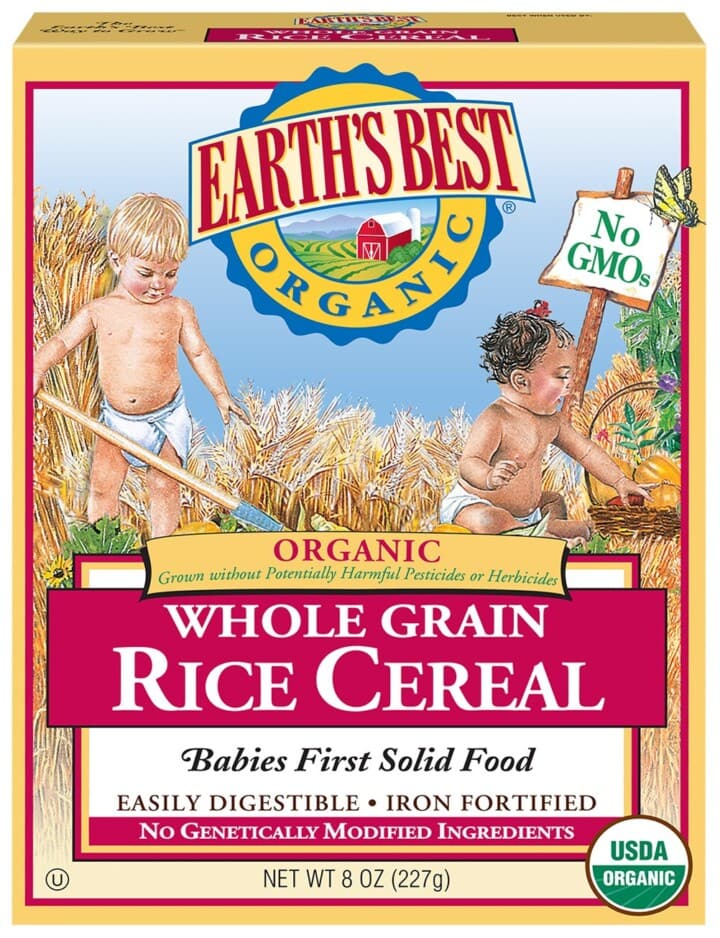
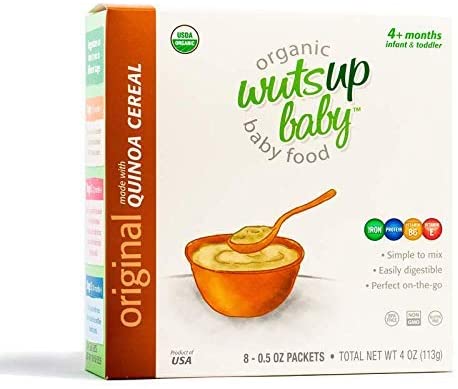
Favorite Baby Cereals
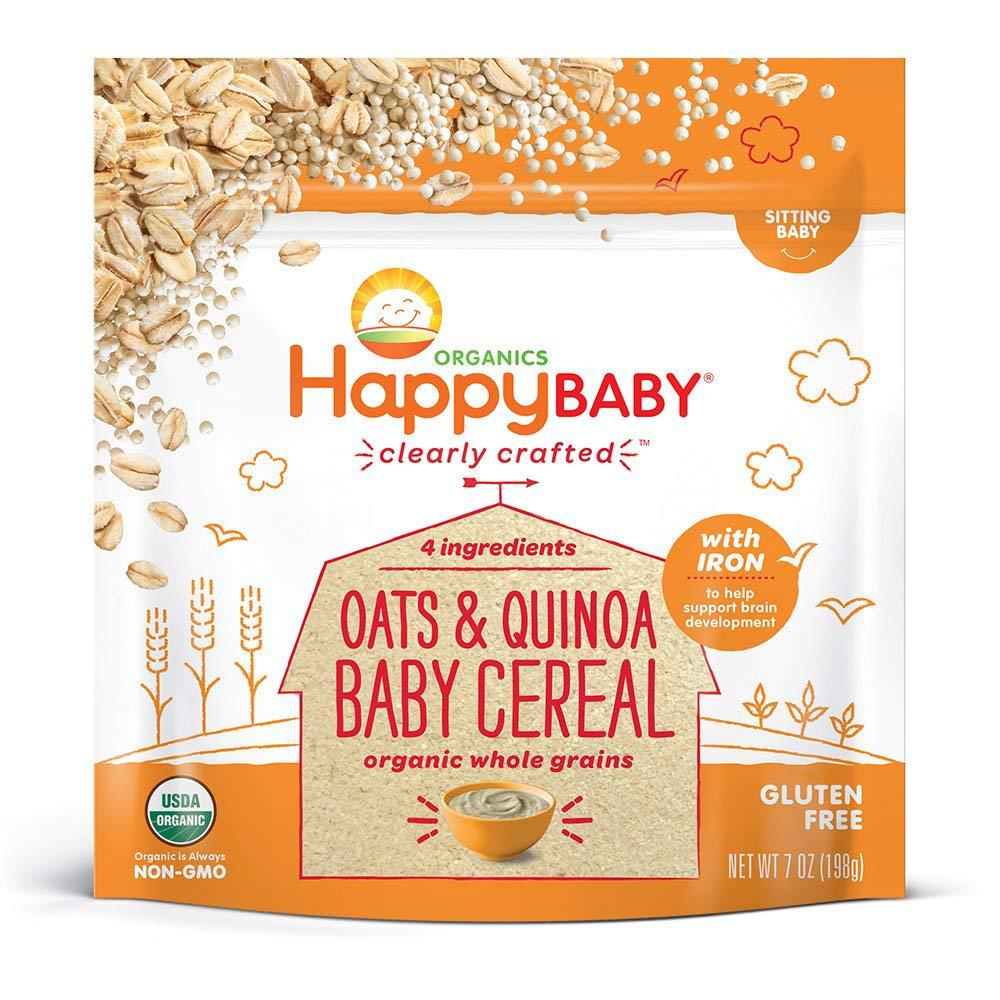
Happy Baby Organics Oats & Quinoa Baby Cereal
Age: 4-6+ months (Stage One)
Price Per Serving: $0.47
WIC Approved: No (see notes)
Organic grains are blended to ensure a silky smooth texture and the resealable packaging guarantees that this cereal stays fresh. Furthermore, this product is gluten-free and contains no GMOs. Serve warm or cold with breastmilk, formula, or water.
- organic oats and quinoa is paired with vitamin C and iron
- quinoa, a complete protein, helps keep your little one satisfied
- unlike other cereals, the addition of vitamin C enhances iron absorption
- gluten-free and non-GMO
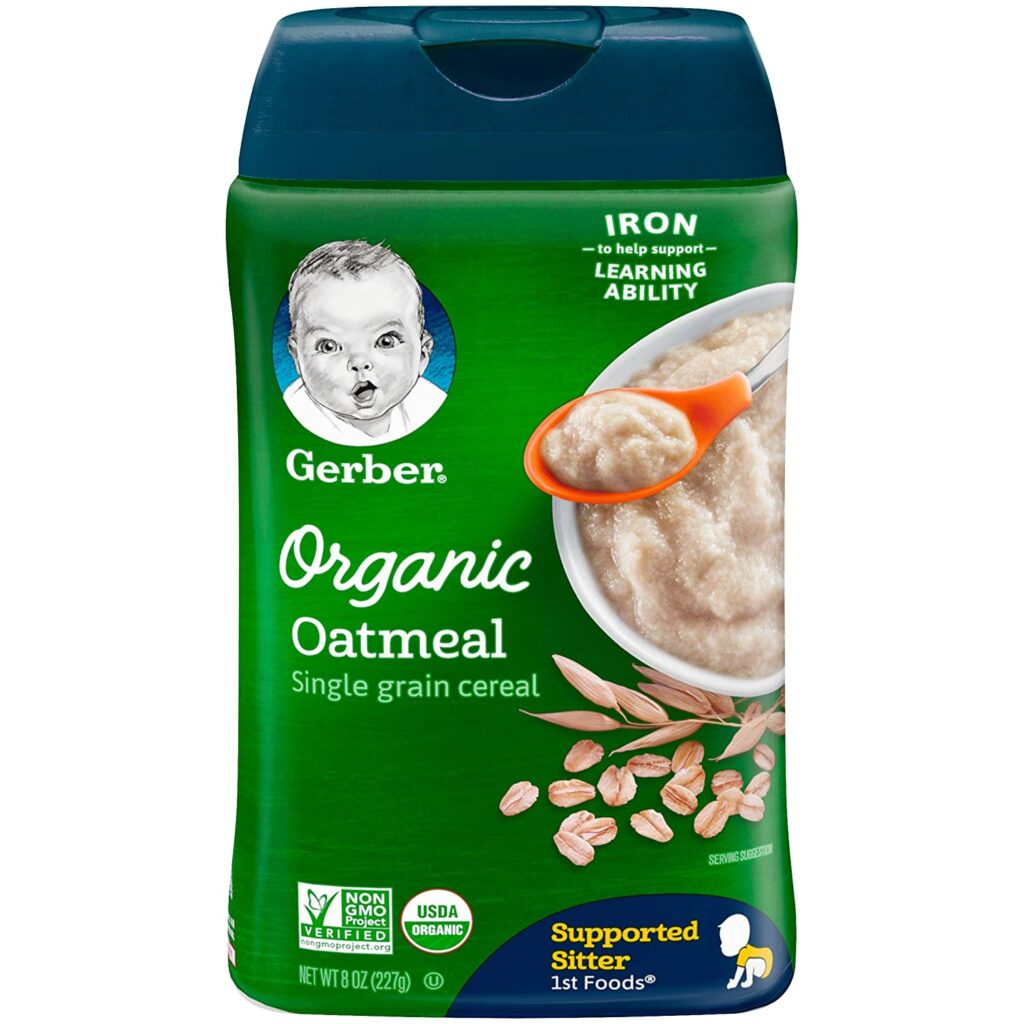
Gerber Baby Organic Oatmeal Cereal
Age: 4-6+ months (Stage One)
Price Per Serving: $0.49
WIC Approved: Yes (see notes)
Gerber has been providing families with quality baby products for going on a century and their organic oatmeal is a signature starting point for a baby’s first food.
- contains organic oats
- fortified with a plethora of added vitamins and minerals including B vitamins, zinc, iron and calcium for healthy development
- comes in a sturdy container with a simple pop top making preparation and storage a breeze
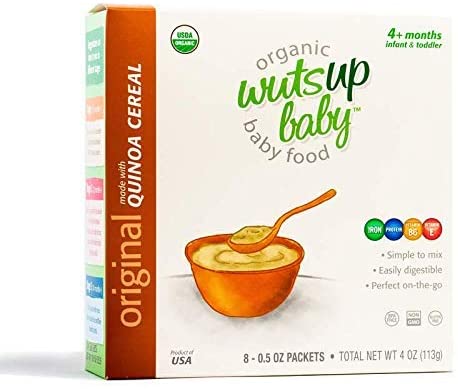
WutsupBaby Organic Quinoa Baby Cereal
Age: 4-6+ months (Stage One)
Price Per Serving: $3.29
WIC Approved: No (see notes)
Simplicity at its finest! This cereal has one ingredient – organic quinoa. What this means is that it is loaded with B vitamins, manganese, magnesium, iron, protein and fiber. Most importantly, it is hypoallergenic and gluten-free, so there is no worry of having an issue with your little one.
- contains organic quinoa
- packaged in individual, on-the-go packets
- pre-biotic packed for easy digestion and absorbtion
- organic and non-GMO
- no artificial colors or flavors
- hypoallergenic – Free of gluten, dairy, soy, sugar and preservatives
- made in USA
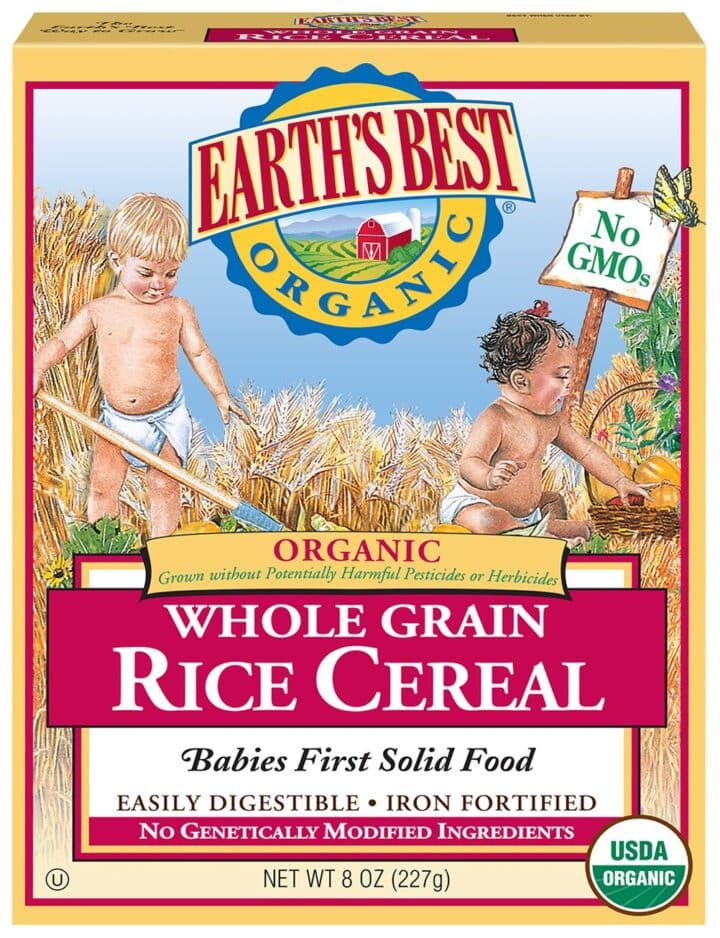
Earth’s Best Organic Infant Cereal, Whole Grain Rice
Age: 4-6+ months (Stage One)
Price Per Serving: $0.59
WIC Approved: Yes (see notes)
A great organic rice cereal for your baby that is made from whole grain brown rice, this delicious iron-fortified cereal is made with organic ingredients grown without potentially harmful synthetic pesticides.
- made with whole grain brown rice
- iron fortified for infant growth and development
- no artificial flavors, colors or preservatives
- USDA Certified Organic and made with non GMO ingredients
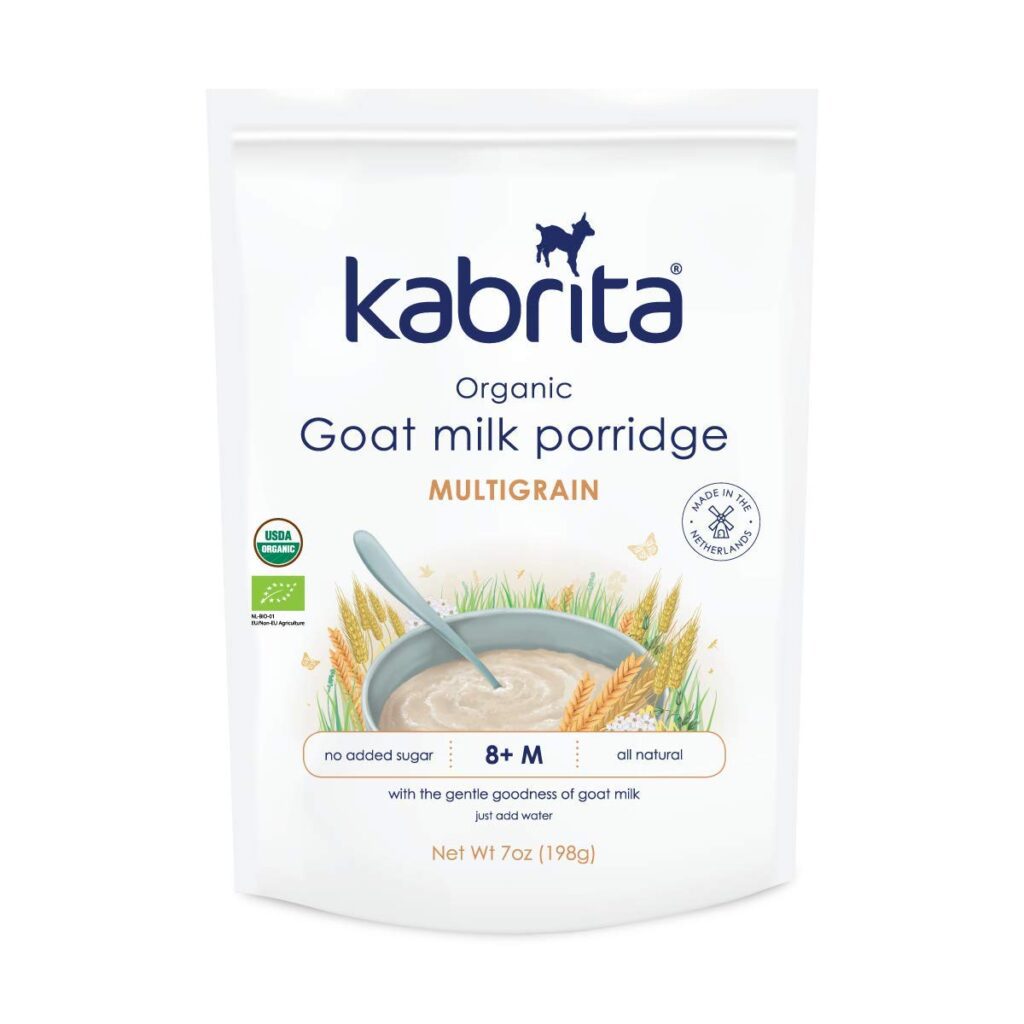
Kabrita Organic Goat Milk Porridge
Age: 8 months (Stage Two)
Price Per Serving: $1.99
WIC Approved: No (see notes)
Kabrita features a fully organic custom blend of whole-grain oats, spelt flour, buckwheat flour, dried goat’s milk and rice flakes. What this equates to is a protein-packed meal that is brimming with calcium and potassium! Made in the Netherlands, this product is also free of glyphosate pesticides and is non-GMO.
- made with a blend of whole-grain oats, spelt flour, buckwheat flour and dried goats milk
- rich in calcium, good fats, and protein with no sugar added
- ingredients organically grown in Europe
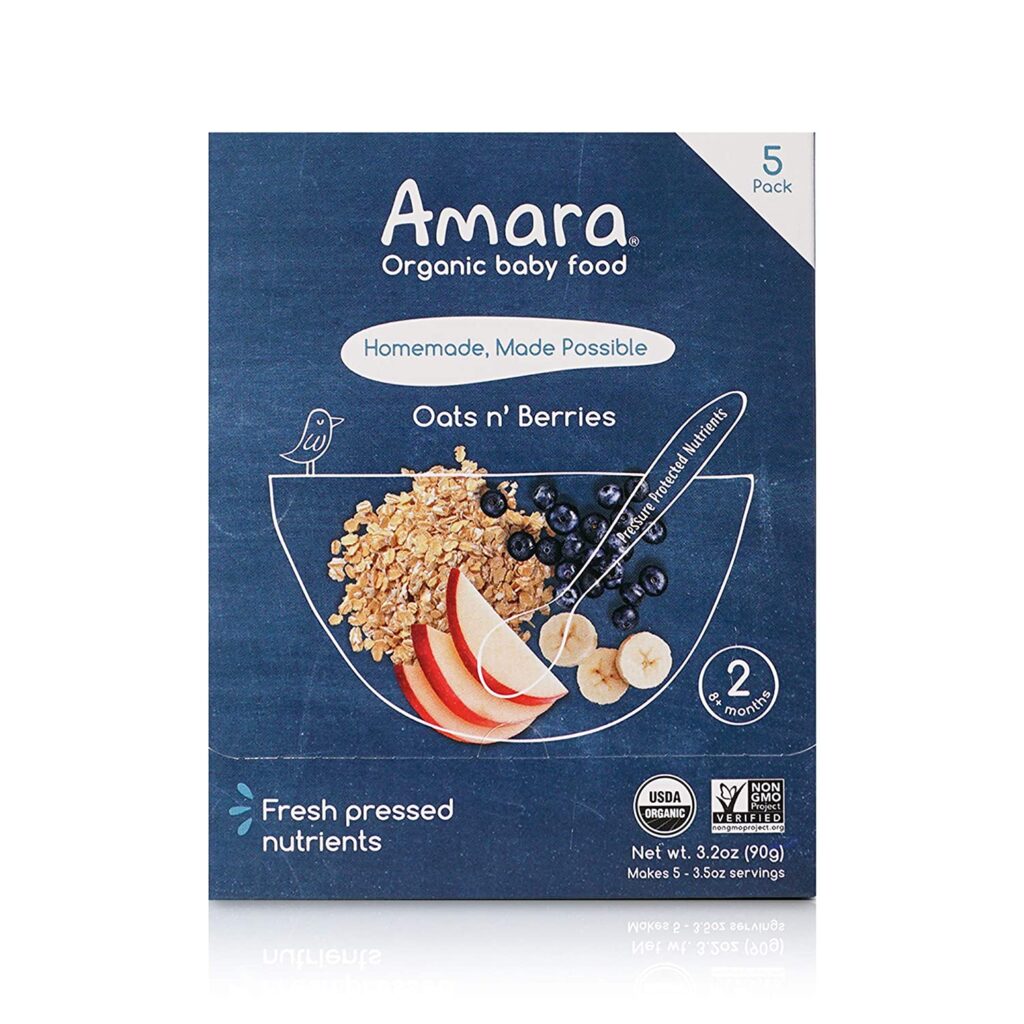
Amara Organic Oats & Berries
Age: 8 months (Stage Two)
Price Per Serving: $2.75
WIC Approved: No (see notes)
Another stage two option, the Amara breakfast pouches include organic oats and fruits. These simple, healthy ingredients are uniquely pressure preserved to guarantee freshness, without the need for refrigeration.
- contains oats, apples, bananas and blueberries (they have other combintations as well)
- innovative technology locks in taste, texture and nutrients from fruits and veggies
- thicker stage 2 puree
- organic, non-GMO
Notes on WIC: As some local regulations vary, please check with your local WIC program to confirm approval on all baby cereals. WIC is a Special Supplemental Nutrition Program for Women, Infants, and Children that is available to some families in the US.
